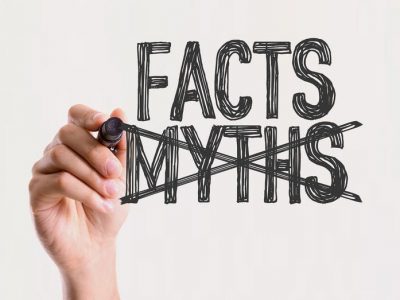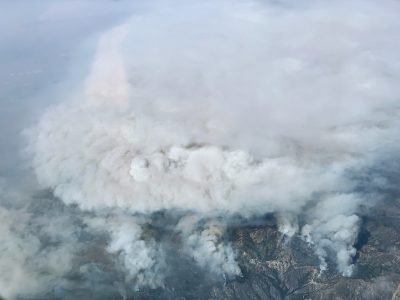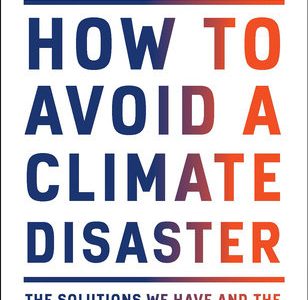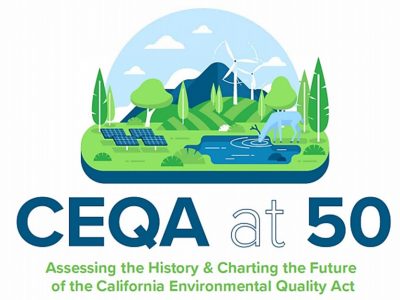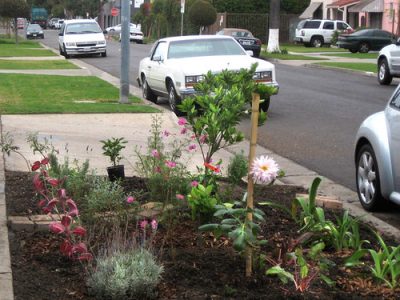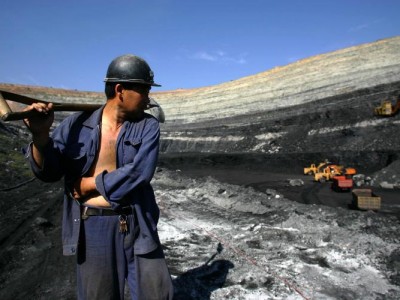Five Myths About Climate Policy
Debate about climate policy is often distorted by misconceptions.
In this post, I want to talk about some of the ideas that make it hard to have sensible discussions about climate policy. I don’t mean outright climate denial. Instead, I’m talking about less blatant misconceptions that keep many people from thinking seriously about cutting carbon emissions. Myth #1. EPA climate rules are a regulatory power grab. The main agency regulating greenhouse gases is EPA. Because the first regulations were issued under Obama, it’...
CONTINUE READINGAmerican Soil
Soil is an important carbon sink. It's literally going down the drain, eroding away.
Today is Earth Day. Let's talk about something earthy: the dirt under our feet. When I was a kid growing up in central Illinois, the topsoil was black and went down about a foot. When I was a little older and tried gardening, I was amazed at the fertility of the soil. When I’ve gone back there more recently, however, I’ve been startled by the thin, gray look of the soil on the farms. I wondered if it had eroded away, blown off the fields by the spring winds ...
CONTINUE READINGOffering “Carrots” to Protect the Amazon
Brazil asks for a billion dollars to slow deforestation. Would this be cooperation or extortion?
In March, US President Joe Biden invited the leaders of 40 countries to a virtual climate change summit, which takes place today and tomorrow. During the lead-up to this, many countries announced commitments of varying specificity and firmness to reduce greenhouse gas emissions. (I hope to write soon on the European Union.) Brazil's position is remarkable but has maintained a fairly low profile in the news media. Brazil's greenhouse gas emissions fro...
CONTINUE READINGCommon Ground on Climate: Understanding the US-China Joint Statement
After months of growing geopolitical tensions, the US and China have finally found something to agree on: the need to confront the climate crisis. In fact, two days of meetings last week in Shanghai between US Special Presidential Envoy for Climate John Kerry and his counterpart, Special Climate Envoy Xie Zhenhua have culminated in the release of a joint statement. This breakthrough comes just days before top officials from around the world convene virtually for the Bide...
CONTINUE READINGStraws in the Wind
Businesses have intensified public support for climate action. That could presage a major shift in climate politics.
In the past few weeks, there’s been a notable growth of business support for climate action. A letter from the CEOs of 300 hundred major companies called for a 50% cut from 2005 carbon emissions by 2030. The companies ranged from the utilities to tobacco to investment management. Google, McDonalds, Walmart, and Philip Morris were among the signatories. The reasons the companies gave for this target were many: Catalyzing a zero-emissions future, Spurring a r...
CONTINUE READINGGuest Contributors Leeza Arbatman, Michael Cohen, and Shawna Strecker: New California Bills Provide Pathway for Local Wildfire Risk Reduction in Southern California
SB 85 and SB 63 create opportunities for wildfire prevention strategies proposed by UCLA California Environmental Legislation and Policy Clinic
We are students in UCLA Law’s California Environmental Legislation and Policy Clinic, a course in which students work with legislative staff in the California State Legislature to advance environmental policy goals. In Fall 2020, working with staff for State Senator Henry Stern, we developed recommendations for local government efforts to manage wildfire risk. Now, new legislation could help make proposals like ours a reality: This week, SB 85, allocating $73 mi...
CONTINUE READINGGates on Climate
A guide to updating the global operating system.
The original Microsoft operating system was called QDOS, for Quick and Dirty Operating System. Bill Gates’s new book might well have been called “A Quick and Dirty Guide to Climate Policy.” The book, How to Avoid a Climate Disaster, provides a concise overview of climate policy, detailing the threat of the climate crisis and a roadmap to the options for reducing emissions. Despite frequent use of the first-person singular and a few personal anecdotes, the ove...
CONTINUE READINGU.C. Davis School of Law Hosts “CEQA at 50” Conference on April 16th
Virtual Event Commemorates Past, Predicts Future of the California Environmental Quality Act
Now a half-century old, the California Environmental Quality Act (CEQA) remains California's most important, cross-cutting and controversial environmental law. Originally patterned on the 1969 National Environmental Policy Act, CEQA has over the decades become a more powerful law than its federal counterpart. And while numerous other states have adopted their own "little NEPA" statutes, CEQA is the strongest such law in the nation: in addition to informing decisi...
CONTINUE READINGGuest Contributors Kelsey Manes & Ashley Sykora: State Should Clean Up Los Angeles Parkways Impacted by Exide Pollution
Communities for a Better Environment and UCLA Environmental Law Clinic Urge State Agency to Reevaluate Inequitable Cleanup Proposal
We are UCLA Law students enrolled in the Frank G. Wells Environmental Law Clinic, a class in which students work on behalf of community and environmental groups to help advance client goals through legal advocacy. This semester, we worked with Communities for a Better Environment, a community-based environmental justice organization that works in heavily polluted urban areas, to help protect public health from environmental harms caused by the Exide battery recycling...
CONTINUE READINGCreating New Jobs in Coal Country and the Oil Patch
How can we help carbon-dependent communities transition economically?
One of the goals of Biden’s clean energy and infrastructure proposals is to provide an economic boost to people who will otherwise lose out in the transition to a sustainable economy. He has similar plans for “environmental justice” communities. This is a great goal, but it may be more difficult than it seems. In a 2020 article, economist Timothy Barik provided a close look at state incentives for businesses to locate in distressed communities. This isn’...
CONTINUE READING



